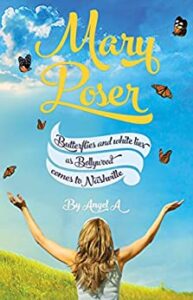
Holy Parrot received a 4+ star review, making it an IndieReader Approved title.
Following find an interview with author Angel A.
What is the name of the book and when was it published?
Holy Parrot. December 1, 2022.
What’s the book’s first line?
“Her name was Maria. I can’t remember if I adored her at the beginning, as I simply can’t remember a time when I didn’t.”
What’s the book about? Give us the “pitch”.
This is the story of the phenomenal events that occurred in Buritaca, Colombia known as ‘Loro Santo’, or Holy Parrot.
Leo Lumière was an undergraduate science student from Australia working in the coastal fishing village of Buritaca in Colombia. Maria swore the parrot they call Gabriel told her that she will be the mother of the new Christ. Miraculous events unfolded. But was she lying to hide a despicable secret? Or was she birthing the saviour of the new millennium?
What inspired you to write the book? A particular person? An event?
Both a person and events inspired the writing of Holy Parrot. I have a Colombian friend who related the religious tenacity and superstitions of her culture to me, and I feed King Parrots by hand on my balcony at home. Somewhere in there a story emerged.
What’s the main reason someone should really read this book?
This book can be appreciated on many levels. On the surface, it is a travelogue of an Australian science student in a tropical Latin American setting. A little deeper, it is an exploration of relationships in challenging circumstances. Deeper still, it is an exposé of the suffering of the human spirit in the face of unreconciled trauma.
What’s the most distinctive thing about the main character? Who-real or fictional-would you say the character reminds you of?
There are two main characters: Maria and Leo. Looking at Maria’s situation, the story explores the motivations of fear and desperation that arise in her as a result of completely inexplicable circumstance. The character reminds me of so many people who allow or create narratives for themselves that protect them from facing potentially uncomfortable truths.
When did you first decide to become an author?
I won a creative writing competition in high school. It was a surprise for me and a hint that I should perhaps take creative writing seriously.

No. My first novel was called, ‘Mary Poser: Butterflies and white lies as Bollywood comes to Nashville’. Before this I wrote screenplays.
What do you do for work when you’re not writing?
I also work in healthcare.
How much time do you generally spend on your writing?
Too much! Writing is a rabbit hole for me. As I integrate layers, more layers appear. Managing the complexities and resolving the multitude of narrative arcs takes a lot of time. Years, in fact.
What’s the best and the hardest part of being an indie?
The best part is the control of the narrative and the lack of time restraints, just as long as self discipline is strong enough to handle these freedoms. The hardest part is not being able to hand over the project to others for P&A (print and advertising).
What’s a great piece of advice that you can share with fellow indie authors?
It’s tempting to say, “believe in yourself.” But many highly successful writers and artists suffer from self-doubt. So, perhaps the best advice is, “be persistent.” Nothing beats dedication and persistence.
Would you go traditional if a publisher came calling? If so, why?
Optioning of territorial rights is available for traditional publishers. But beyond this, I am comfortable with the entire process of publishing and the requirements of external support for this is manageable.
Is there something in particular that motivates you (fame? fortune?)
I am working with themes to transcend suffering. There are ten gateways to divinity (awakening) that I have discovered, and the narratives are about exploring these gateways.
Which writer, living or dead, do you most admire?
Possibly Joseph Campbell. He provided a concise framework for human consciousness and behaviour as expressed through paradigms or faith.
Which book do you wish you could have written?
‘Holy Parrot’. I’m pleased that I was able to. Otherwise, I am a grateful student and spectator to any other author’s efforts.
